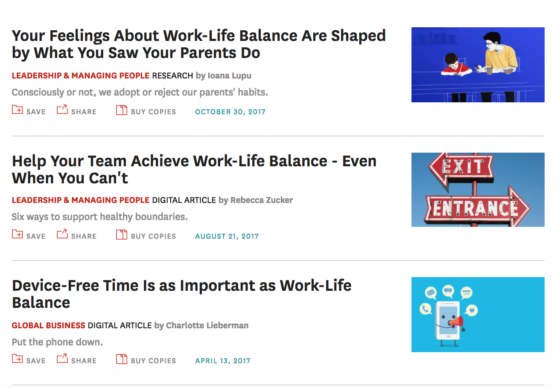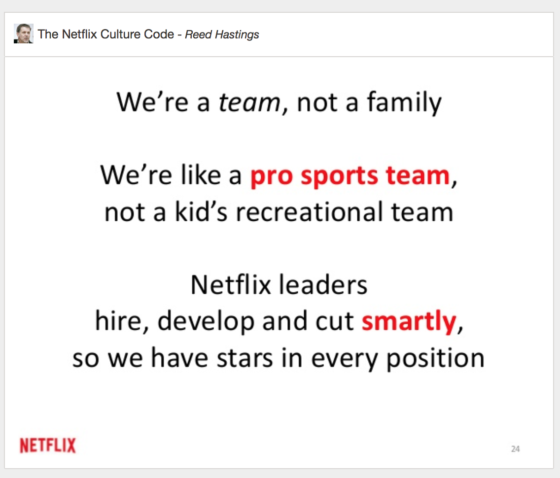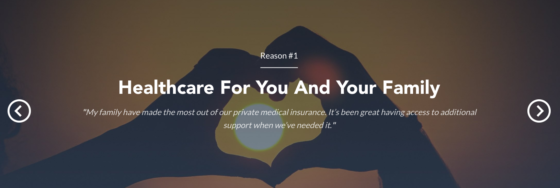Why your business isn’t a ‘family’

Businesses with good intentions refer to their companies as a “families” in product pages, careers pages, job descriptions and emails because they want to sound warm, inviting and personable to candidates and employees. They might even want to appeal to millennials, the largest generation in the U.S. workforce, who crave career and personal development, and a sense of belonging to an organization with like-minded values.
But leaders who actually view their employees as “families” expect more than just work from them. They blur the lines between work and home, infringing upon the sanctity of real family relationships. This mindset also gets in the way of profitability. And it begins with the way we talk about work.
Why ‘family’ should have no place in corporate speak
Corporate jargon and buzz-phrases aren’t going anywhere. Lists with new words surface every year, and other than being unimaginative and disingenuous, corporatese is mostly harmless. Increasingly, however, home and family phrases have snuck into our workplace language, crossing a line to the personal:
‘Culture’
Reserved for ethnicity, countries and background, now belongs comfortably at work in the phrases “work culture” or “culture fit.”
‘Life’
Reserved for big questions like “What are you going to do with your life?” and the philosophical “What is the meaning of life?” is now married to the word “work” in the odd pairing “work-life balance,” or “worklife” for short.

‘Spouse’ and ‘family’
“Work spouse” is used to describe someone you work closely with. Variations include “work wife,” “work husband,” “office husband” and “workplace spouse.”
The infiltration of family phrases into our workplace lexicons should concern us all, because “family” shouldn’t be in the same bucket as jargon. Unless you run a family business, work isn’t synonymous with family. And the more we blend the two together, the more we undermine both.
You can’t ‘quit’ or ‘fire’ your family, and you don’t need to ‘retain’ them
Good talent is a competitive advantage. But how do you fire your family for not performing well? Would you put your mom on a performance improvement plan? How do you promote your sister over your brother?
Treating your employees like family prevents you from being as honest and unemotive as you need to be sometimes in business. You don’t need to “retain” family members, because they’ll always be family. There’s no concept of “high performers” in families, because families, unlike companies, don’t need to perform.
Families rely on loyalty
Companies that consider themselves families are more likely to expect unquestioned loyalty from employees. Loyalty creates camaraderie but, depending on who’s in charge, it can also be toxic and blinding in family-like organizations. Here are some examples:
- Hazing by fraternities and sororities.
- Criminal acts by terrorist groups.
- Murders by the mafia.
- Deaths at the hands of crazed cult leaders.
If you’re not family, you’ll never be family
Companies that consider themselves families may unwittingly foster an “us vs. them” mentality — you’re either in the family or you’re not. And this can get ugly in the workplace through:
- Discrimination and bias: People who don’t look or act like the family (your company, team or division, etc.) won’t be trusted or hired.
- Groupthink: Employees will only say what they think the “family” wants to hear, instead of challenging the status quo. This thinking can stifle new ideas and innovation.
- Bad judgment: Organizations that function like families might be more willing to forgive and forget offenses that can seriously compromise the entire business (e.g. financial fraud, harassment and bad management.)
Businesses are ‘teams’ not ‘families’
If you’re seeking another metaphor to describe your company, consider a winning professional sports team. Good teams are united by a clear goal: to win games. The team changes as players rotate on and off of rosters, or coaches strategically cut or trade athletes. These trades, cuts and transfers can seem chaotic, and sometimes heart-breaking, but a good shake-up and a bit of chaos can actually stimulate creativity.

Cultivate trust instead of a family bond
Instead of pretending you’re family when you’ll never be family, aim for being trustworthy. Build a genuine dynamic, with both words and actions. Here’s how:
Say what you mean, and make sure its meaningful
Take a look at your company literature and website (about us, careers page, job descriptions.) Are they genuine? What do you mean when you say “we’re family?” If you mean you care about employees’ well-being, delete the familial phrases and replace them with benefits that really show what you mean. Here’s an example from Ayima’s careers page:


Make sure managers succeed
No one has more impact on an employee’s job-related happiness than their manager. There are different schools of thought about management, but the science shows that while strict managers command respect from subordinates, they do so at the cost of stressed out employees who are more likely to leave their jobs. Meanwhile, leaders who project warmth create a more trusting environment.
Take a look at your largest teams and read their performance reviews (from both managers and employees.) You’ll get a good idea just from the language which teams and leaders trust one another.
Empower your HR department
HR is the only division within an organization that is solely responsible for meeting employee needs. Make sure your HR department is reliable. HR staff should:
- Onboard employees correctly
- Meet regularly with employees to communicate what’s going on at the company
- Create a good employee handbook, and make sure employees are involved in its annual review and update
Good teams and companies function well because their members know they can rely on one another, not because they’re related by blood. Strong HR and management practices, a good set of benefits and fair compensation structures help businesses cultivate the trust and reliability employees need to succeed.




